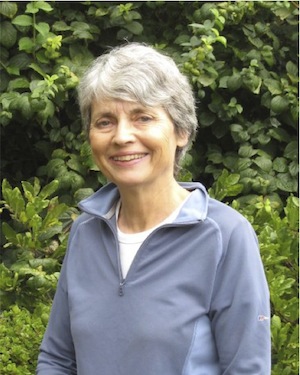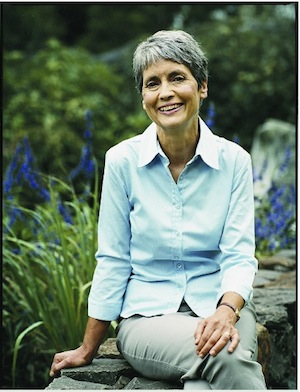We are delighted that Rosemary Stanton, one of Australia’s best- known and respected nutritionists, has agreed to be an Ambassador for Adult Learning Australia.
Why did you decide to take on the role of Ambassador for Adult Learning Australia? What do you hope to be able to contribute?
I am passionate about learning. Basically I think the day you don’t learn something is a sad day indeed. I do realise that learning takes a bit of an effort, but, just drifting through a day with no effort doesn’t appeal to me. My own learning involves my topic of nutrition and health,but I’m also keen on cryptic crosswords and scrabble. The dictionary is rarely out of reach. I’m also keen on learning about birds, plants and gardening as well as the daily learning that comes from observing grandchildren.
You really had to stand up for yourself when it came to going to university. Where did this enthusiasm for learning come from?
I was brought up in a religious sect that forbad girls going to University. Their rationale was that too much education might put a woman in a position of authority over a man. That didn’t fit with their ideas of ‘headship’. Such a restriction was a powerful stimulus to me not to accept such archaic ideas and I vowed to continue my education.
Nutrition was certainly not my first choice (medicine was) but the enlightened man in charge of Health Education in the Department of Health created a special cadetship for me to go to university and receive a living allowance while I was there. He needed nutritionists and so that what was on offer. I took it and decided to throw myself into it.
You’re passionate about changing Australia’s poor eating habits through education. In your view what role can adult learning play in changing Australia’s eating habits and creating healthier communities?
There are three aspects to my passion for food: food choices that promote health; teaching people about the food (what I call ‘food literacy’), which includes how it grows; what happens to it; how it tastes and exploring foods that are new to us and help bring people from different cultures together and the problems of maintaining a sustainable food system.
Every one of these aspects of food and nutrition requires lots of learning. The health aspects are important to keep us going; the ‘food literacy’ aspects bring great pleasure for foodand respect for those from whom we can learn; and there is a steep learning curve associated with a sustainable food supply. Older people may have a lot to offer the debate on sustainability because they lived through a time when food was valued and not wasted.
In your experience what are the most effective and engaging ways to teach adults about good nutrition and healthy eating? How can we model better eating practices for children?
I am a firm believer that gardening is an excellent teacher about many aspects of life. It teaches us planning and patience (no instant gratification from planting a seed, but great expectation as the plant grows and becomes productive). Children who attend schools with a kitchen garden program have better eating habits; more skills in the kitchen (which assists when both parents work outside the home) and the garden is often a refuge from bullying and other life stresses. Once we grow fruit and vegetables (either in a home or community garden), we also get back in touch with food, seasonality and the wonderful flavours of freshly harvested products.
How do you continue to learn in your own life?
Although I do little paid work, I rarely have a day without an interview with a journalist. They seem to value my attention to keeping up with the latest information and with my freedom from conflict of interest. With no employer to keep happy, I am free to give my opinion. As I want that opinion to be valued, I continue to read widely and am involved in a consulting role (unpaid, but interesting) with several universities and government bodies.
I can’t imagine a day when I won’t want to learn more and there will always be so much more to learn than I can ever conquer. It means life will never be dull!
About Rosemary
Rosemary Stanton has been awarded an Order of Australia for her services to community health through education in nutrition and dietetics.
She has a Biochemistry and Pharmaceutical Chemistry degree, post-graduate qualifications in Nutrition and Dietetics, a Graduate Diploma in Administration and a PhD for her work in public health.
Rosemary is a prolific author. She has written over 30 books covering nutrition for adults and children, obesity, and women’s health issues.


